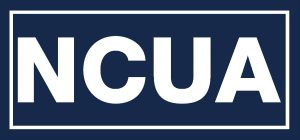Closing costs are important fees that you should know about if you are considering applying for a mortgage. These fees vary depending on the lender and are usually 2% to 6% of the amount you are borrowing.
By understanding how closing costs work and which fees are typically included, you can save money by going through a lender that offers the lowest fees. The savings can be significant.
What Are Closing Costs?
Closing costs are fees for various services that are part of the mortgage application process. They get their name because they are usually paid on the day of the mortgage closing.
Closing costs are usually paid one of two ways. First, the home buyer can pay for all of the closing costs out of pocket. Second, it may be possible in some cases to finance the closing costs.
You may also be able to negotiate the fees with the seller. Arrangements are sometimes made where the buyer and seller split the closing costs. Also, some motivated sellers may offer to pay all of the closing costs to encourage a quick sale.
Which Fees Make Up Mortgage Closing Costs?
The fees that make up mortgage closing costs will vary depending on the lender. The following are some typical closing costs that you may encounter when shopping for a mortgage.
Credit Report
Your lender will check your credit before approving you for a home loan. Your credit score and payment history are important indicators of how you will manage future debts.
Home Appraisal
Home values change over time. Although homes typically increase in value by 3.5% to 3.8% each year, there are some cases where a home may go down in value.
If a major employer in a community suddenly shuts down its operations, for example, the demand for homes in the area will decrease, thus causing home values to decline. Lenders have homes appraised to make sure the amount they are lending is appropriate for the purchase.
Title Search
A title search will be done to make sure there are no liens on the property. If there is a legal claim on the home you want to buy, it could make buying it difficult or cause problems later.
Title Insurance
A title insurance policy offers protection in case something was overlooked during the title search.
Land Survey
Your state may require a land survey to be done before you can obtain a loan. If a survey hasn’t previously been done, you will have to hire a surveyor to have one completed.
Attorney Fee
At the closing, an attorney or settlement agent will oversee the legal transfer of the home’s title from the seller to the buyer. You may also want to use an attorney to represent your interests in the purchase.
Mortgage Application Fee
A fee may be charged by a lender when you submit a mortgage application.
Origination and Underwriting Fees
It takes a lot of time and resources to collect, evaluate, and verify an applicant’s financial information. The lender will also have to order a home appraisal, order the final loan documents, and make sure all laws and regulations are followed. The origination and underwriting fees cover all of the work involved in processing the mortgage.
Points
If you are buying points to lower the interest rate on your mortgage, they will be paid at the closing.
Courier Fees
This fee covers any documents that need to be shipped.
Flood Certification
FEMA requires lenders to determine whether the home you are buying is in a flood zone. If it is, you will have to maintain flood insurance on the property for the life of the loan. Your lender will notify you if your home is in a flood zone prior to the closing.
Tax and Insurance Service
This service makes sure that your real estate taxes are paid for the life of the loan. It also tracks hazard and flood insurance (if required).
Documentation Preparation Fee
The “doc prep” fee, as it is often called, covers the cost of preparing the initial and financial disclosures and other loan documents.
Transfer Tax
A local or state tax may be assessed to record your deed. Depending on where you live, this tax may be your responsibility, the seller’s, or it may be negotiated. If this tax is assessed, it may be disclosed in the purchase contract or loan estimate. You can also ask your attorney to see if you are responsible for the tax.
Mortgage Tax
You may be assessed a mortgage tax by the state, county, or city. It varies depending on where the property is located.
Recording Fee
This is a fee charged by a local government agency to register or record the deed, mortgage, and other documents.
Prepaid Interest
Mortgage payments are always due on the first of the month, and any interest that is due for the current month will be collected at the closing.
Homeowners Insurance
You will have to pay the premium for your first full year of homeowners insurance at the closing.
Escrow Deposit
An escrow account will be established to pay for real estate taxes, homeowners insurance, mortgage insurance, and flood insurance (if required) when payments are due. You will make an initial deposit at the closing to fund the account.
The required amount depends on the number of mortgage payments before the escrowed items are due. The amount usually includes a two-month buffer.
How Do You Reduce Closing Costs?
Although closing costs can be significant, there are some things you can do to lower them. First, it’s important to understand that different lenders will have different closing costs. Some will be higher than others, and some lenders will charge more fees than other lenders.
Credit unions, for example, usually have fewer and lower mortgage fees and closing costs than banks and other lending institutions.
Also, if you are a first-time home buyer, you may qualify for a grant to help you with this expense. It’s worth your time to research your options to see what’s available before you apply for a mortgage.
Finally, as previously mentioned, you may be able to negotiate the closing costs with the seller. This may not always work, of course, especially if there is a strong real estate market where you are buying a home. If a seller has multiple offers, for example, he or she will most likely go with the highest offer and probably won’t be interested in helping out with the closing costs.
How Do Closing Costs On a Refinance Work?
Refinancing is a great way to save money on interest when rates go down. But it’s important to keep in mind that you will have to pay closing costs on your new mortgage.
Some lenders advertise refinance mortgages with no closing costs, but the fees are usually just added to the principal you will have to repay with your new loan. These loans still have closing costs.
If you are considering refinancing your current mortgage, it’s important to find out how much the closing costs will be before you apply. You can then compare the fees to the interest you will save with the new loan to see if refinancing makes sense for your financial situation.
Saving Money on Closing Costs
Buying a home is a major purchase, and saving for a down payment and the closing costs on your mortgage can take a while. A mortgage with high closing costs could mean you have to postpone your dream of homeownership or buy a home with a lower down payment.
To save as much money as possible, credit unions like TEG Federal Credit Union offer mortgages with the lowest closing costs. TEGFCU’s mortgages also have low interest rates and flexible terms to help you maximize your savings.
If you are a first-time home buyer, TEGFCU can also connect you with some valuable programs to help you with the purchase of your home.












